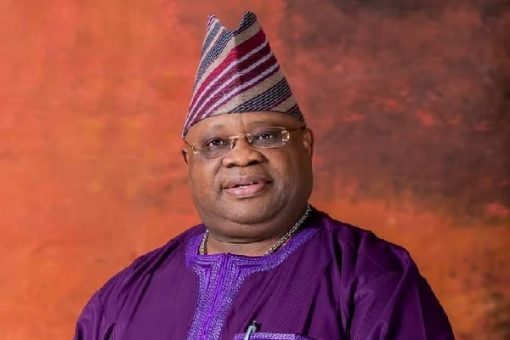
Till Death and Not Beyond: Late Ohanaeze Leader Chief Emmanuel Iwuanyanwu Reportedly Bars Wife from Remarrying in Controversial Will

In a development that has sparked widespread debate and ignited conversations about love, loyalty, tradition, and control beyond the grave, a report has surfaced alleging that the late Chief Emmanuel Iwuanyanwu, a prominent Igbo elder statesman and former President-General of Ohanaeze Ndigbo, placed a controversial clause in his will barring his wife from remarrying after his death, with a stern condition: if she does, she forfeits her inheritance. The startling revelation, though unconfirmed officially, has caused a stir across social and cultural circles, especially in southeastern Nigeria where Chief Iwuanyanwu was a towering figure both in business and politics.
Chief Iwuanyanwu, who passed away earlier this year, was known for his commanding presence and deep influence in Igbo sociopolitical affairs. His death was met with nationwide tributes, with many recalling his decades-long service in engineering, philanthropy, and community leadership. Yet, even in his passing, the statesman appears to have left behind more than just memories. According to reports making rounds online and within inner circles, his last will and testament included a specific and deeply personal instruction to his wife, Lady Amb. Chioma Iwuanyanwu, allegedly stipulating that she is not to marry another man after his demise. The consequence of disregarding this directive? An automatic forfeiture of whatever properties or financial benefits he had willed to her.
The condition, reportedly tucked into a legally binding section of the will, has raised eyebrows and drawn reactions from all quarters. Legal experts, cultural custodians, women’s rights activists, and members of the general public have taken to various platforms to share their perspectives. Some see the clause as a manifestation of patriarchal control extending beyond the grave, while others interpret it as a cultural relic, rooted in traditional expectations of eternal fidelity and respect for the dead.
Social media has become a battleground of opinions. One X (formerly Twitter) user wrote, “So a man dies and still wants to dictate how his widow lives? This is the ultimate red flag.” Another replied, “Igbo tradition values respect for the deceased. Maybe he’s only asking for what he gave—unwavering commitment. Besides, no one’s forcing her to choose inheritance over love.” The polarity in responses mirrors the deeper clash between evolving social norms and long-standing customs that shape the Nigerian marital and inheritance landscape.
While official family representatives have yet to publicly confirm or deny the clause, the mere rumor has been enough to ignite a media storm. Legal analysts are weighing in with cautionary takes, noting that while testators have the right to set conditions for bequests, some conditions—especially those considered discriminatory or unreasonable—can be challenged in court. In Nigeria, wills are generally upheld as expressions of the testator’s free will, provided they do not breach existing statutes or constitutional rights.
According to Barrister Ifeanyi Okonkwo, a family law practitioner in Enugu, “It is not uncommon for wealthy individuals to attach personal conditions to bequests, especially when there are fears of betrayal or misuse of assets. However, a clause that seeks to control a widow’s remarriage may be interpreted as infringing on her fundamental rights. The courts may look at such provisions with a lens of equity, especially if the widow contests it.”
On the cultural side, some traditionalists argue that the reported stipulation may have been inspired by age-old practices among some Igbo communities where widows are discouraged, sometimes tacitly and other times openly, from remarrying. Such customs often tie a woman’s continued honor to her late husband’s lineage to her decision to remain unmarried, especially when the union had produced children. However, these customs are increasingly being challenged by younger generations and human rights advocates who argue they perpetuate inequality and deny women the autonomy to live fulfilled lives after widowhood.
Lady Chioma Iwuanyanwu herself has maintained a largely private and dignified silence since the passing of her husband. A respected diplomat and public figure in her own right, she was known to have had a visibly affectionate and loyal relationship with Chief Iwuanyanwu during their time together. The nature of their marriage, many close to the couple have said, was built on mutual respect, devotion, and shared values. For some observers, the clause—if it truly exists—may not have been an expression of distrust, but rather a deeply personal plea from a man who struggled with the idea of life continuing without him in his beloved wife’s heart.
Still, even those sympathetic to such an interpretation acknowledge that codifying such a wish in a will introduces complex implications. It turns a personal emotional desire into a legal and financial ultimatum. Some have drawn parallels to similar inheritance conditions imposed in history and literature, often with dramatic or tragic consequences. Others argue that love and loyalty should never be conditional—certainly not enforced through the lure or threat of money.
The debate also brings to light the role of wills in controlling narratives after death. Many African families have experienced posthumous drama stemming from contested wills, and this case—given Chief Iwuanyanwu’s status—may not be the last high-profile example of personal clauses becoming public battlegrounds. Already, there are calls for Nigeria’s legal community to issue clearer guidelines about the ethical and legal limits of testamentary conditions, especially as more Nigerians adopt formal estate planning.
As this story continues to unfold, many are watching not just for a confirmation or denial from the Iwuanyanwu family, but also for broader social reflections it might provoke. Does a man’s love grant him the right to dictate the emotional future of his spouse after his passing? Is a widow’s choice to remain single evidence of loyalty, or simply personal preference? And if money is tied to that choice, does it still remain a free decision?
Regardless of the eventual outcome, one thing is certain—Chief Emmanuel Iwuanyanwu’s legacy, which already loomed large in politics and tradition, has now sparked a nationwide discussion that cuts to the very core of culture, autonomy, and love after loss. In death, as in life, he remains a figure who commands attention, provokes thought, and leaves no one indifferent.


